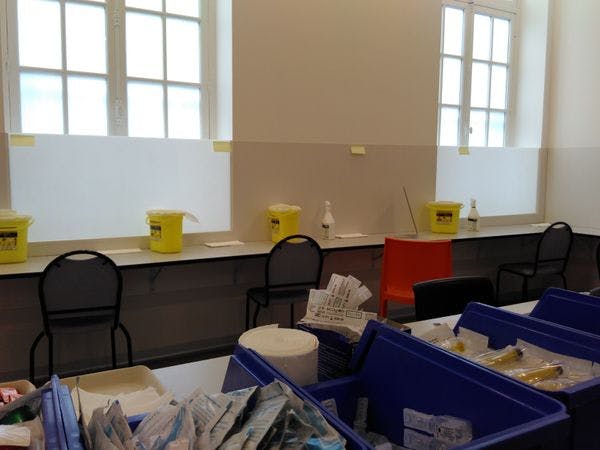Ireland set to open first supervised injection facility
By Marcus Keane (Head of Policy, Ana Liffey Drug Project)
On Tuesday 16th May 2017, the President of Ireland signed into law the Misuse of Drugs (Supervised Injecting Facilities) Act 2017, thereby creating a legal framework within which SIFs can legitimately operate in the country.
The passage was the culmination of a number of years of work by many stakeholders. Although it has long been recognised that Ireland, and Dublin in particular, has a problem regarding unsafe injecting drug use in public places, it is only in recent years that an impetus and focus has been given to SIFs as a viable policy option. In 2012, the Ana Liffey Drug Project (ALDP), an IDPC member and NGO working in Ireland, specifically named the establishment of a supervised injecting facility in their strategic plan. As part of this work, the organisation sought a detailed analysis of the legal landscape as it related to SIFs in late 2013. This analysis provided a review of both international and domestic sources of law relevant to the operation of SIFs and concluded that in order for a SIF to operate in a stable legal environment, legislative change would be required.
Seeking support for the next phase of work, ALDP approached the Voluntary Assistance Scheme (VAS), a project of the Bar of Ireland which works to provide access to high quality legal services for established NGOs. In early 2014, the VAS established a legislative drafting committee, a group of lawyers with significant and specific experience in relevant areas of law, such as legislative drafting, healthcare and criminal law. This group took a pragmatic, solution-focused approach to the work, adopting a minimum intervention approach which sought to change in law only that which was strictly necessary to enable a facility to operate. This group gave a significant amount of their time, pro bono, over the course of a year to work on this problem. They produced a refined and updated legal opinion on the key issues, a draft bill and an explanatory memorandum to the bill, which was handed over to ALDP and to the then Minister with responsibility for the National Drugs Strategy, Aodhán O’Ríordáin TD in May 2015. Minister O’Ríordáin had previously been a teacher in a school in Dublin’s inner city. He understood the harms that injecting in the public domain caused, both on individual levels and chose to champion the legislative change.
In December 2015, he brought the legislation to Cabinet, where it was agreed that the project would be progressed. Minister O’Ríordáin lost his seat in the general election in early 2016, but the commitment to legislate survived into the new programme for government, and the incoming Minister, Catherine Byrne TD continued to champion the project. The bill was progressed by the Department of Health through the normal channels for developing legislation, with input provided from other government departments and stakeholders, including NGOs like ALDP and statutory bodies like An Garda Síochána (the police force in Ireland), and with a final draft being produced by the Office of the Attorney General. The bill was introduced to the Dáil (the Lower House of the Irish Parliament) in February 2017.
ALDP lobbied members of Parliament on the bill, mainly focused on seeking to ensure there would be no unnecessary amendments tabled which, while well intended, would have the practical effect of making the opening of a facility more difficult, such as a statutory ban on opening within a certain distance of a school, for example. The bill passed in the Dáil wthout amendment and was introduced to the Seanad (Upper House), where it also passed without amendment. Ireland’s statutory health service, the Health Service Executive, is now tasked with establishing the new service. It is working with stakeholders, including people who inject drugs, to develop a plan for this, with the new service expected to be in place by late 2017.
The introduction of supervised injecting facilities will have a real and positive impact in Dublin, both for people who inject drugs and for the wider community. However, the process of how the country got to this point is also instructive – the reality is that no one actor can unilaterally implement effective drug policies. However, by working together, and recognising each others’ respective strengths, state and civil society actors can effectively work together on discrete projects, building trusting relationships which can be leveraged to ensure there is constant progress towards person-centred drug policies which are supported by the best available evidence.
Keep up-to-date with drug policy developments by subscribing to the IDPC Monthly Alert.
